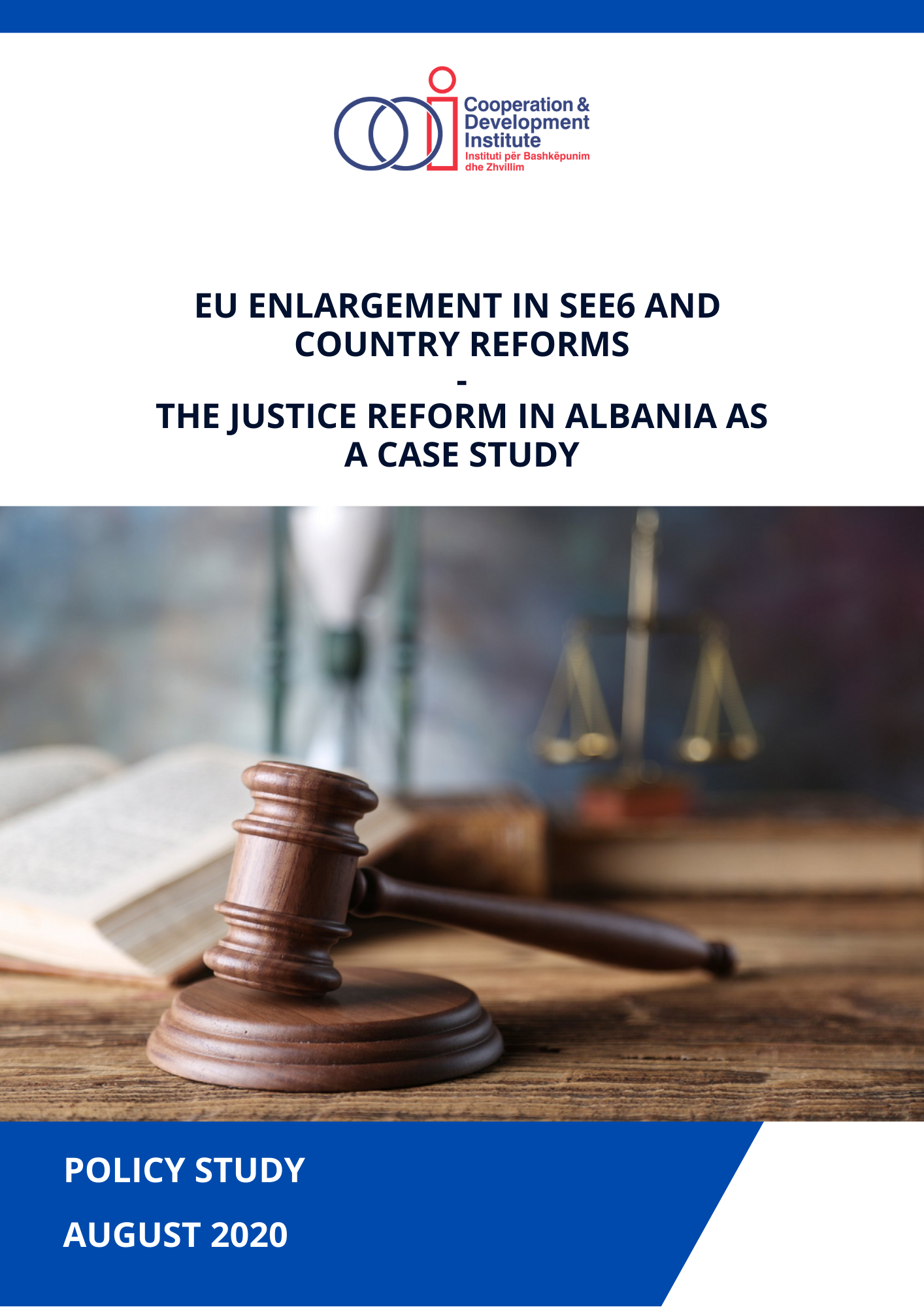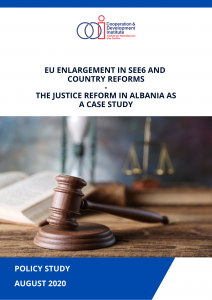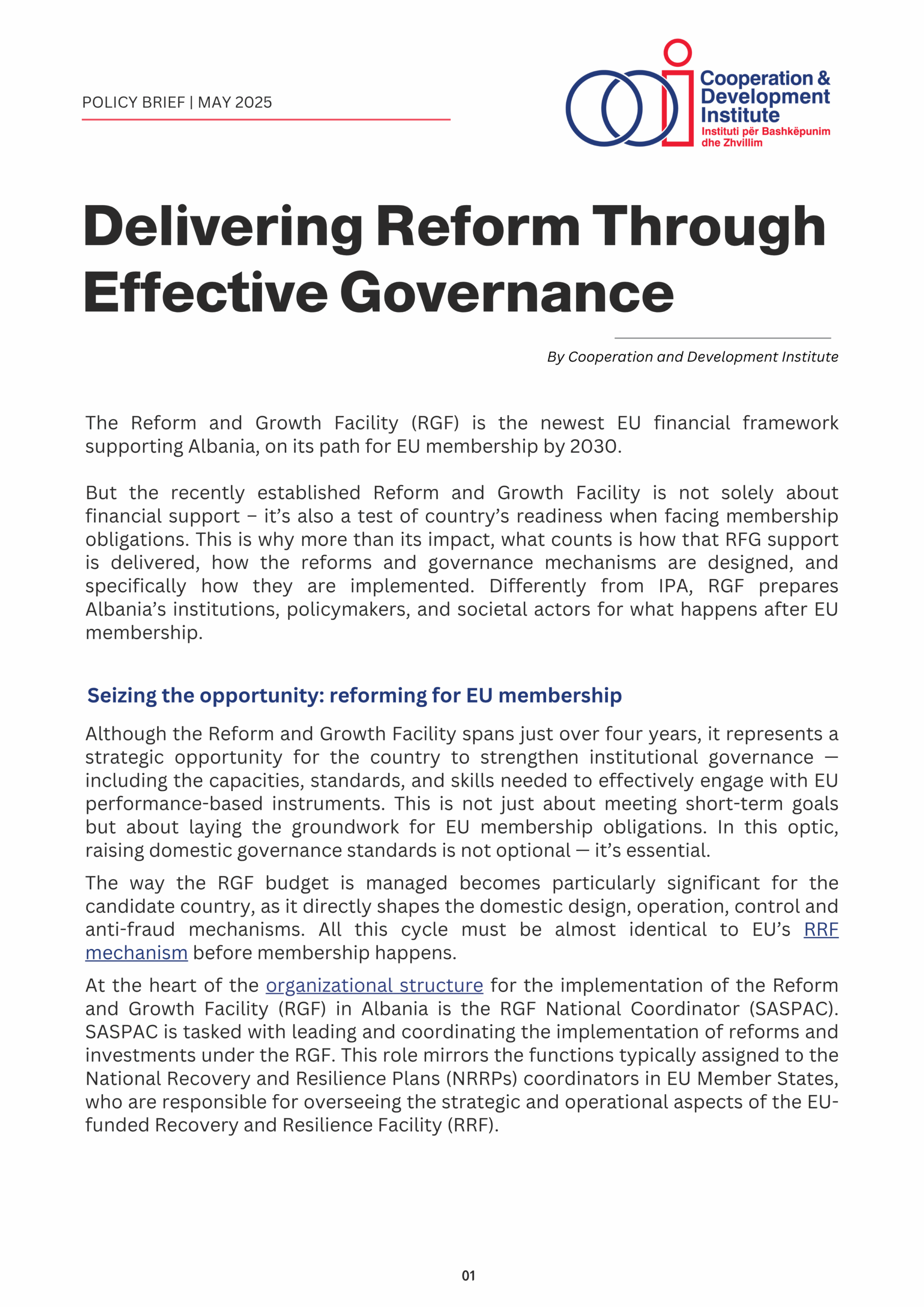EU Enlargement in SEE6 and Country Reforms: The Justice Reform in Albania as a Case Study

#TCF2020 is part of the official calendar of activities of the German Presidency of the European Union
August 20, 2020
The 6th edition of TCF to take place online on 1-2 October 2020
September 1, 2020Harmonization of timelines, comprehensive and long-term planning, availability of resources, and choice of right partners, condition the relationship between Reforms and Enlargement.
While the reforms in SEE6 are advancing, gradually they are becoming an integral part of the conditionality checklists put by EU. The existing conditions are becoming more detailed, new ones focused on measurable impact are added, and their scope is enlarged to include “fundamentals” such as democratisation, human rights and the rule of law. Their monitoring and certification is extended in time. The role of Member States in the Enlargement has increased through the monitoring on the ground, reporting and intervention by means of assistance in selected sectors
The relationship between Reforms and Enlargement is complex. If not planned carefully, it may result in Catch22 situations. Dilemmas appear and choices must be made when harmonizing the high complexity, deep societal changes, enormous resources and long-time perspective that the reforms need, with the pace of progress that a formal, highly normative and meticulously-planned process such as Enlargement requires. The first Catch22 situation may result in the scenario where the Enlargement progress is conditioned by the impact of reforms, while the Reforms cannot progress without the support of the mechanisms and resources provided by the Enlargement.
The second Catch22 situation relates to the fact that one cannot reform captured institutions without a critical mass of local political will in support of those institutional changes. But often this means asking the illegitimate actors that profit from the system, to help bring down the very system they are profiting from.
Notwithstanding its imperfections, the Justice reform in Albania constitutes a huge advancement in the establishment of a functional democracy in a post-communist country. Being the first reform of such depth and scope in the SEE6, its represents a test case for exposing the systemic importance of the design phase, the need to embed any system change on the socio-cultural and economic base of the local society, the importance of planning in the long-term perspective and with the required resources, and the value of well selecting the reform partners to carry such changes.
From a Reform Frontrunner Albania now should aim to be an Enlargement frontrunner. The success of such an endeavor will test the working hypothesis of irreversibility of democratic reforms in the SEE6, as well as the suitability of EU instruments supporting those reforms.
Tags: Albania, EU accession , Reforms, Enlargement, Balkans, Rule of Law





National Parliament and the Reform Agenda 2024-2027
Read more